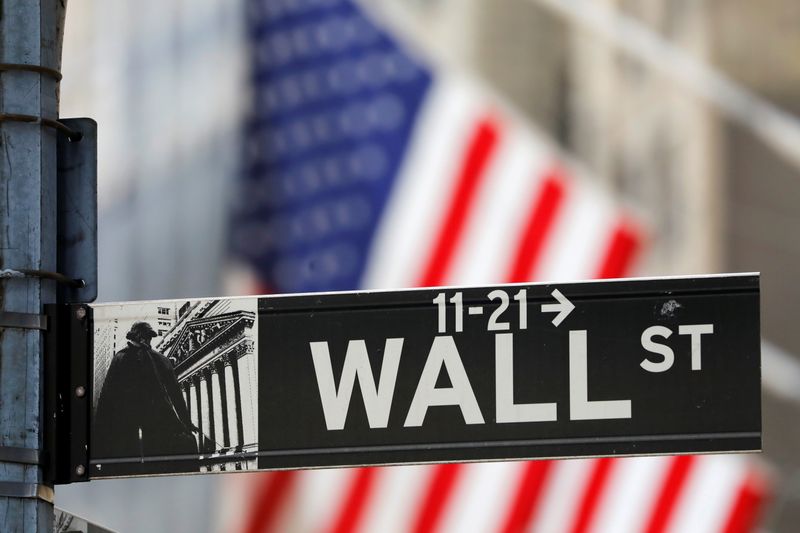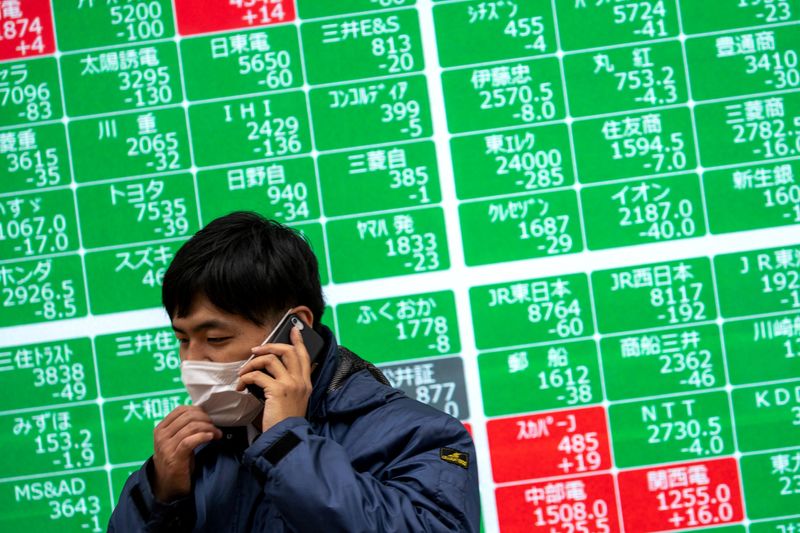By Herbert Lash
NEW YORK (Reuters) - A gauge of global equities surged on Thursday as Wall Street rallied on hopes the Omicron COVID-19 variant will prove mild and will not halt a strongly recovering U.S. economy, while the dollar edged higher in choppy trading as risk appetite improved.
The number of Americans filing new claims for unemployment benefits rose less than expected last week while layoffs tumbled to a 28-1/2 year low in November, both signs of tightening U.S. labor market conditions amid an accelerating economy.
"People feel a bit more confident that while the new variant might be highly contagious, it looks like so far the conditions are mild," said Marc Chandler, chief market strategist at Bannockburn Global Forex.
The blue-chip Dow posted its best one-day percentage gain since March with Boeing (NYSE:BA) Co providing the biggest lift after China's aviation authority gave a seal of approval to the planemaker's 737 MAX aircraft.
MSCI's all-country world index closed up 0.75% as Wall Street rallied. The Dow Jones Industrial Average rose 1.82%, the S&P 500 added 1.42% and the Nasdaq Composite advanced 0.83%.
While U.S. investors saw Omicron as mostly benign, European shares fell as countries ramped up restrictions to curb the variant's spread and raised worries about its impact on the region's nascent economic recovery.
The broad STOXX Europe 600 index fell 1.15%.
The dollar's gains were limited as investors looked ahead to the non-farm payrolls report due on Friday for the state of U.S. employment in November.
Wall Street economists estimate the U.S. economy created 550,000 new jobs last month, a Reuters poll showed.
The dollar index, which tracks the greenback versus a basket of six currencies, rose 0.096% to 96.142. The euro was down 0.19% at $1.1298, while the yen traded up 0.36% at $113.1600.
U.S. Treasury yields edged up as investors returned to riskier assets, with 10-year Treasury notes rising 1.5 basis points to 1.449%.
The 10-year TIPS breakeven rate was last at 2.479%, indicating the market sees inflation averaging about 2.48% annually for the next decade, or lower than recent expectations.
Federal Reserve officials have been talking up a quicker end to the U.S. central bank's massive bond purchases as signs of faster inflation appeared.
Federal Reserve Bank of Atlanta President Raphael Bostic told the Reuters Next conference on Thursday it would be appropriate to conclude the tapering of bond-buying by the end of the first quarter of 2022.
"There are two camps in the market," Chandler said. "One camp agrees that inflation is out of control, but the other camp thinks that inflation is going to be temporary."
Oil prices settled higher after a see-saw session in which benchmarks swung in a $5 range after the Organization of the Petroleum Exporting Countries and allies surprised markets by sticking to plans to boost output slowly.
U.S. crude futures rose 93 cents to settle at $66.50 a barrel, while Brent oil futures settled up 80 cents to $69.67 a barrel.

Gold dropped over 1% to a one-month low as investors latched on to the Fed's plans to tighten monetary policy more quickly than expected to rein in rising consumer prices.
U.S. gold futures settled down 1.2% at $1,762.70 an ounce.
